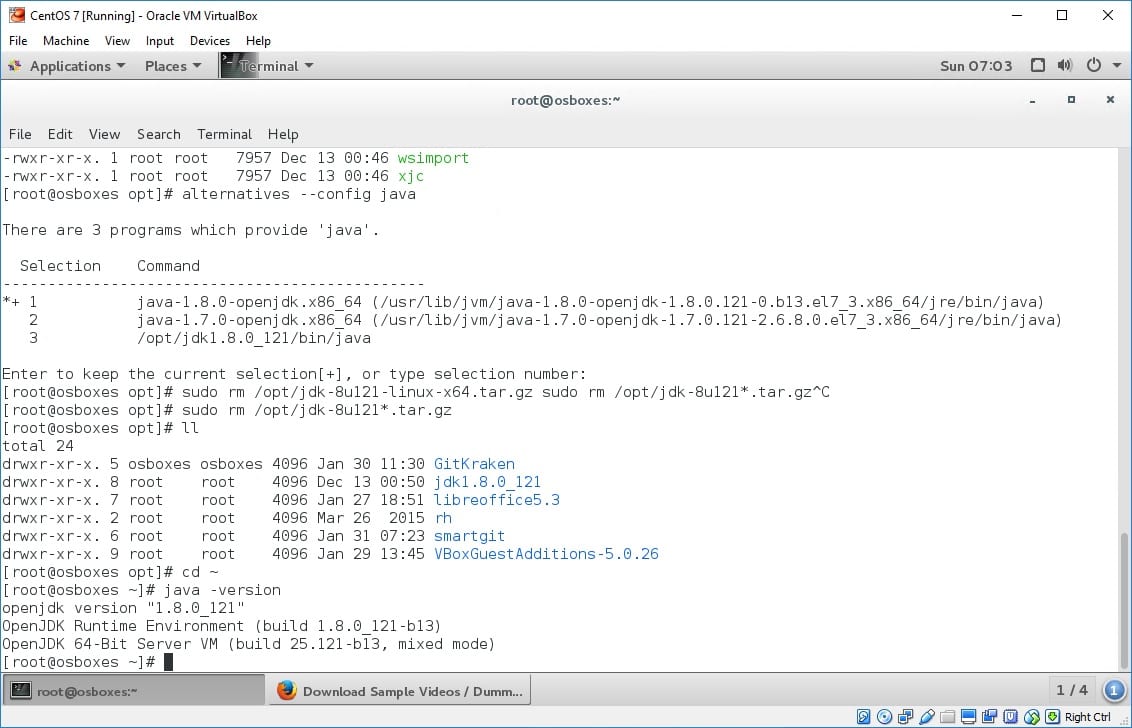

- UPDATE JAVA 1.7.0_101 IN LINUX HOW TO
- UPDATE JAVA 1.7.0_101 IN LINUX PDF
- UPDATE JAVA 1.7.0_101 IN LINUX INSTALL
- UPDATE JAVA 1.7.0_101 IN LINUX UPDATE
- UPDATE JAVA 1.7.0_101 IN LINUX MANUAL
However, this file cannot be configured directly and should be done using the visudo command as follows- $ sudo visudo To grant all permissions to the created hadoop user, you must configure the sudoers file located at /etc/sudoers. Grant All Permissions to the Hadoop User “hduser created in the above Step On executing the above command, it will prompt you for the password and other details as shown below. The next step is to create a hadoop user named hsuser and add it to the “hadoop” group created in the above step.
UPDATE JAVA 1.7.0_101 IN LINUX INSTALL
In this hadoop tutorial, we will use openssh server which can be installed as follows – $ sudo apt-get install openssh-serverĬreating a dedicated hadoop user helps separate HDFS from UNIX file system. We can begin by creating a “Hadoop” group as follows – SSH is required to manage the remote machines and your local machines before using hadoop on it. You can check the java version installed on your machine by using the command - java -version However, using Java 1.6+ is recommended for this hadoop tutorial. We are using Openjdk-7 to install Java software in this hadoop tutorial- $ sudo apt-get install openjdk-7-jdk Java TM 1.6.x or later, preferably from Oracle or Openjdk, must be installed. You can check if Java is already installe don your machine using the below command-java –version. To run hadoop on Ubuntu, you must have Java installed on your machine preferably Java version 1.6+ from Sun/Oracle or OpenJDK must be installed. Java is the main pre-requsiite software to run hadoop.
UPDATE JAVA 1.7.0_101 IN LINUX UPDATE
Execute the below command to see if there are any updates available- $ sudo apt –get update

You can download it from this linkĬheck for update or update the source indexīefore you begin to install hadoop on Ubuntu, ensure that it is updated with the latest packages from all the repositories and PPA’s. In this hadoop tutorial, we are using Ubuntu Server 12.04.5 LTS (64 bit).

Hadoop Pre-installation Environment Setup
UPDATE JAVA 1.7.0_101 IN LINUX PDF
UPDATE JAVA 1.7.0_101 IN LINUX HOW TO
UPDATE JAVA 1.7.0_101 IN LINUX MANUAL
* 0 /usr/lib/jvm/java-7-openjdk-amd64/jre/bin/java 1071 auto modeġ /usr/lib/jvm/java-7-openjdk-amd64/jre/bin/java 1071 manual modeĢ /usr/lib/jvm/java-8-openjdk-amd64/jre/bin/java 1069 manual mode You get something like this: There are 2 choices for the alternative java (providing /usr/bin/java). You get something like this (in a 32-bit environment -i386 postfix instead of -amd64): java-1.7.0-openjdk-amd64 1071 /usr/lib/jvm/java-1.7.0-openjdk-amd64



 0 kommentar(er)
0 kommentar(er)
